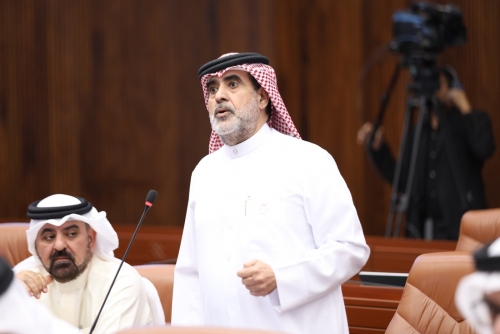MPs Push Half-Off Fees for Seniors, Shura Backs Selective Discounts
TDT | Manama
The Daily Tribune – www.newsofbahrain.com
Email: mail@newsobahrain.com
MPs want a 50 per cent cut in state fees for Bahrain’s seniors, arguing it’s essential relief. The proposal, up for further discussion Tuesday, faces pushback from the Shura Council and government, which suggest targeted discounts instead—setting up a debate over how far support for the elderly should go.
The proposal to amend the 2009 Elderly Rights Law would give holders of an Elderly Services Card a minimum 50 per cent reduction on all state fees, with the option to waive some charges entirely. MPs in the Council of Representatives argue that an across-the-board discount would provide much-needed stability for seniors facing rising living costs and help ensure fair access to government services.
The Shura Council, however, has raised financial concerns, supporting a more limited approach that would apply discounts only to selected fees, with the final decision resting with the government. The Ministry of Finance has warned that such widespread fee cuts could reduce government revenue, particularly from non-oil sources. A letter to Parliament pointed out that existing policies, including a 2012 measure and reductions in vehicle registration and licence fees, already offer substantial relief.
Last December, MPs backed the Services Committee’s push to increase benefits for seniors, proposing a 50 per cent discount on state fees to ease living costs. The government, however, urged a financial review to protect public funds. In response, the Shura Council’s Services Committee reviewed feedback and adjusted the proposal, recommending that senior discounts be applied directly through Bahrain’s national ID card rather than a separate service card. This update would simplify administration while allowing the Cabinet to determine which fees and exemptions apply, balancing senior support with fiscal considerations. In February, the committee reiterated its endorsement of the plan, with Saeed Al Samak of the Al Hekma Retired Society supporting the move, citing inflation concerns. The committee also called for a public campaign to boost support for seniors from both government and private sectors.
MP Khalid Buanaq, who introduced the proposal, stated its aim clearly: ‘This change is about showing respect to our seniors, who’ve given so much over the years.’ He pointed out that the existing law, over a decade old, provides limited support, with some discounts still unfulfilled, as noted in a recent audit. With rising costs impacting retirees, Buanaq urged Parliament to act: ‘We must offer genuine relief and security for Bahrain’s elderly, acknowledging their contributions to the country.’
The Ministry of Social Development added its voice, stressing that Bahrain’s elderly already benefit from a range of services and discounts. The ministry’s ‘The Elderly Discount Card’ programme provides a 50 per cent discount on selected services across government agencies, with 28 private firms also extending discounts. With around 70,000 seniors in Bahrain and 14,000 Elderly Discount Cards issued since the start of the pandemic, the ministry argues that a solid support system is in place.
Still, MPs believe a consistent 50 per cent discount on all fees would address gaps in current policies, ensuring equal benefits for all seniors. They maintain this approach would not only ease financial burdens but also uphold seniors’ dignity by providing reliable access to essential services.
The government’s stance also rests on governance principles. While the Council of Representatives holds legislative authority over taxes, state fees are traditionally managed by the executive branch, led by the Cabinet. The Constitutional Court has clarified that fees, unlike taxes, are set by the executive to meet policy objectives and don’t require legislative approval. The government warns that granting MPs more control over these fees could disrupt this balance, potentially affecting public finances.
With a sizeable elderly population, the proposal’s reach is considerable. Supporters claim it would deliver relief to thousands of seniors feeling the squeeze of rising costs, while government officials insist that indiscriminate fee reductions could ultimately strain state resources.
The draft law now returns to the Council of Representatives, as both advocates and critics prepare for what promises to be a spirited debate on how best to support Bahrain’s elderly without tipping the public purse.
Related Posts

